To be honest, when I started writing this interview, I wasn’t sure what direction I wanted to take it. How much should I really reveal here? Believe me, I went back and forth about this. Samuel Seo has everything I love in an artist: fearlessness, passion, and a big mouth. But how do I show that honestly without potentially getting him in some hot water? I found my answer in something he said to me during our conversation: “I’m just being honest, sis.”
That’s all I needed.
“Just a local musician…”
Our opening exchange is a bit awkward. I’ll take full blame for that one. Phone calls and first introductions are, by their nature, weird interactions. The typical bit of salutation:
“Hello to all the readers. I go by the name of Samuel Seo. I’m a singer, songwriter, rapper in South Korea. Yeah, just a local musician.”
I had the immense pleasure of seeing this man perform for the first time at MU:CON at SMTown Theater. While he did get to SXSW in 2016, unforeseen issues with his visa meant he wasn’t able to actually perform. However, he admits MU:CON blessed him with another opportunity.
“It turned out great,” he says enthusiastically. “Sending me to Tokyo, Japan, to perform, and that was one of my dreams.”
All of this is really just a means to ease into the thick of the interview. So let’s get to what you’re all really here for.
Throughout his career, Seo has made various musical transitions. It all seemed so very calculated. Every new avenue explored with intention. It was interesting to find out in an earlier interview around the release of “Ego Expand (100%)” that he never really focused on his musical evolution. That being said, as his music has matured, so has he. That goes along with how he approaches the creative process.
“It kind of evolved into something different,” he says. “Back then all I cared about was just the sound and what I should write throughout the song. But now it’s like I should change the culture, you know what I mean by that?”
This is when things take a very different turn than I could’ve ever expected.
Ignorance Is Bliss
His fascination with bringing more of Korea’s real culture into a sound not native to the country stems from something many fans of Korean music see, but very few artists (and their fans) will admit. “Most of the R&B, hip-hop players in Korea are…” He begins boldly, then pauses. When he has these moments of contemplation, it’s never because he’s trying to figure out how to cushion the blow. No. Samuel Seo is very determined to be honest by any means necessary. As a result, he often searches for the right words to say exactly, exactly what he means. When he finds those words, though, it’s like a punch in the teeth.
He begins again after a few seconds. Then he hits me with one of my favorite phrases in an interview: “It’s just my point of view.”
“All most [Korean R&B and hip-hop artists] do is just copy what the States are doing.”
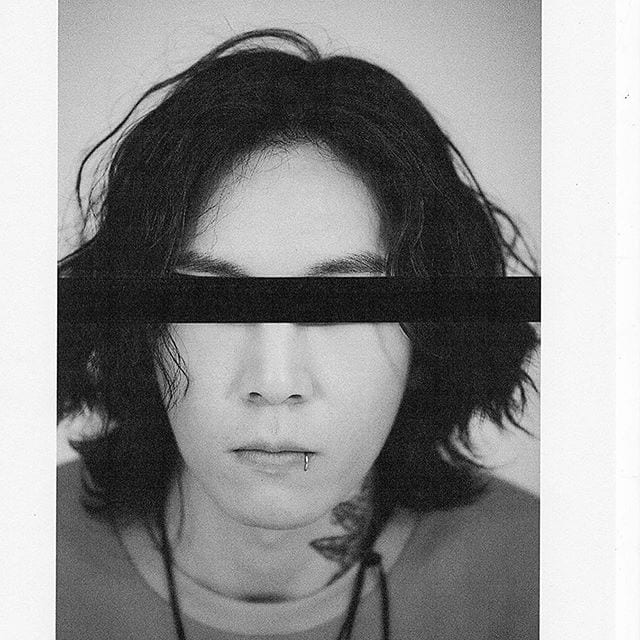
“Damn!” It just slips out of me. I’m not exactly accustomed to any Korean artist saying that so plainly. No mincing words. No beating around the bush.
“It’s true,” he continues. “And they have no intention of studying deep inside what the root is and what the culture is, where the culture came from. So my focus right now is how to reform the culture into Korean from, no offense”–the only time during our entire conversation where he strives for delicacy–“the black culture. And on the side of cultural appropriation stuff? I care most about that.
“Yeah, it’s the basic stuff that they’re missing.”
Anyone who’s read anything I’ve written on the subject knows this is a point of contention for me. How do I, a black woman in the States, reconcile my love of some of the music with the reality that many Korean R&B and hip-hop artists wear my culture like a costume? I’ve always wondered if it’s by choice or if artists genuinely don’t know and revel in their ignorance.
“I think it’s the latter,” Seo says. “They don’t really care about where it’s from. They just do it because they think it’s cool, I think. But I think we need to have more respect for that culture.”
Welcome to My Zone
There’s a fiery sternness to Seo’s voice. I realize this is a subject that’s preoccupied his thoughts for some time as well. His feelings about his unofficial first album, 2013’s “Welcome to My Zone,” is testament to this. While in my mind it was an intriguing first step, Seo has a wholly different perspective. It shows in the hearty laugh he barks when I mention how different “…Zone” is to anything he’s released since.
“It’s a complete mix of what I thought back then was cool and that was all. Without even thinking about what the culture should aim for.” He says unabashedly, “I consider that album the most lame album I’ve ever put out in my entire life. That was the lamest album. But with that album I learned something. As I put out new albums since then I started learning new stuff step by step, so it changed me a lot.”
My intention is to assure him that “…Zone” really wasn’t terrible by any means. I can’t even get past the front door with the sentiment. “Lame! Thoughtless!” he says, laughter and small bit of ire coloring his words. “Lame, thoughtless, stupid… Thinking of the culture side, that’s such a dumb album I put out.”
Regardless of how he feels about it, “…Zone” was really just a young mind trying to find his voice. One can’t fault him for that. “Yeah, it was like 10 years ago, so…”
“It’s gonna happen…”
However, even this moment of self-flagellation means nothing without an actual solution. How does Seo think artists should bridge the gap between the music and the culture it comes from?
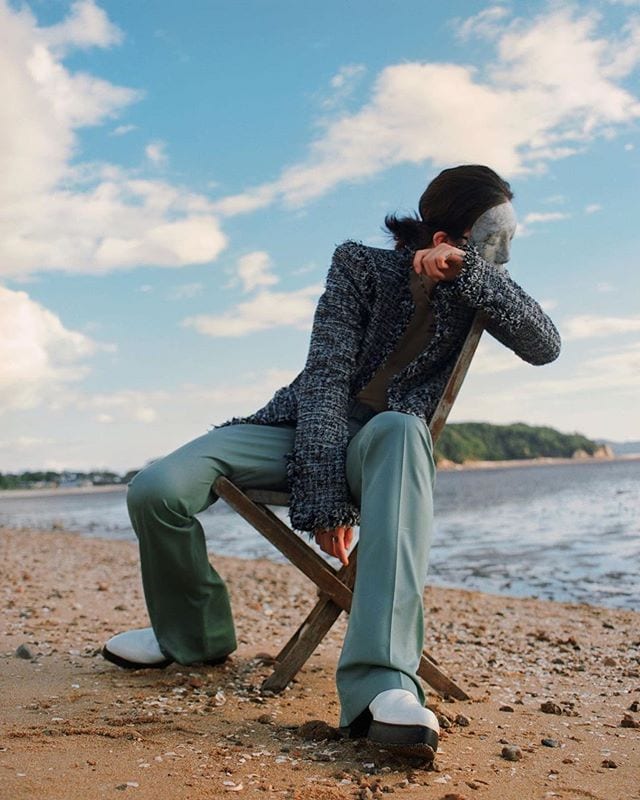
“The first way to reform it properly is to only study the way of how they do music. Don’t try to copy the culture is the first step, I guess,” he says. “Just the music, how they do. But not the stuff they write about because it doesn’t really happen in Korea. Especially the stuff about money and stuff. Yeah, that doesn’t really happen in Korea. So maybe I thought that I should start focusing on the stuff that us Koreans can only write about.”
It’s a simple enough outlook. Write what you know. Hip hop and R&B have been in South Korea for over 20 years at this point. I’m curious to know if he sees this mindset of “ignorance is bliss and a paycheck” changing as we head into another decade of the genres in the country.
“Well the thing is I’m the one that’s starting it right now, so it’s gonna happen,” he says brazenly. “It’s gonna happen throughout the next ten years.”
Another thing about Samuel Seo? He’s cocky as all hell. No, not arrogant. There’s no sense of self-congratulation here. Cocky in that way where he makes you believe 100 percent in what he’s saying.
There and Back Again
It’s certainly an interesting juxtaposition to the young man who at one point thought about giving up on music. After leaving the military, he found himself in various part-time jobs. A sort of man adrift in the world, searching for his right fit. What exactly made him lose his love of music?
“Well that’s ’cause I found cooking a lot more interesting back then than music.” Yes, it’s funny, but this man’s deathly serious. “I was working at a restaurant, a Japanese restaurant called Hongdae Donburi, that’s a local one here. The main chef there was like, ‘Yo, if you don’t like music that much, then why don’t you just join us in the kitchen and start grabbing a knife? That’s gonna be a lot more fun.’ So I was like, why not? Maybe I should try it. And, I don’t know, it was kind of fun.”
Obviously, it was a temporary solution to what really just seems like a case of post-military malaise with a healthy dose of ennui thrown in. It’s not an easy rut to get out of. So, then, what pushed him to give music another try?
“Probably the album ‘Frameworks,’” he says. “It got me to win the award in 2016, The Best R&B Album in Korea. I guess that’s why.”
“So you thought, ‘I’m pretty good at this. Lemme hop back into it.’”
“That’s exactly what happened!” There’s that laugh again. Open. Guileless. Loud! “I’m not a complicated person,” he says, his volume matching his effervescence. “I’m a simple one. Just a straight guy!”
I have to come out and say it. Y’all, this guy is so damn funny! I spare a thought for his surroundings. I hear the midday bustle of Seoul in the background. The rush of cars, the murmur of people on the sidewalk. Seo’s laughter is full-bodied and not at all subtle. One can only hope those who walk past him aren’t judging him too hard.
With the Culture
This does bring up an interesting point, however. Though he’s loath to label himself, Seo is an R&B and Soul artist. His music draws a great deal of influence from the likes of Raphael Saadiq and D’Angelo. With the “Elbow” EP, you hear New Jack Swing. With “UNITY,” obvious jazz conventions. How does he take influence without copying?
“That’s a hard question,” he admits. “Before I got to work on the ‘Misfit,’ album I absolutely had no idea on where or how to do music properly. I didn’t even think of the culture side of stuff. But as soon as I started working on this latest album I started to focus more on the culture of Korea, that’s all.”
Whatever the influences, Seo focuses on how to mix them with his own culture and experiences.
“’Cause it’s fun!”
The truth? Samuel Seo has an almost exacting desire for honesty and authenticity. Unquestionably, it shows in the way he creates his music. No matter what, he’s determined to make each moment count. Each second spent creating is done with purpose. He’s admitted to not spending much time thinking about his musical evolution. But something in the back of his mind must spare a thought for elevating his craft. Yes, yes. I actually say this. Yes, he gets at me for the phrasing with that crazy laugh of his.
“I always think about elevating ‘my craft,’” he says, a taunt and chuckle in the words. “All the time.” More laughing. The moment passes, and he does sober up quickly. “I’m more interested in doing better music than just walking around the street, getting recognized, or hitting the clubs, hitting on the girls and stuff. I don’t have any interest in that kind of culture,” he says with passion. “All I care about [is] how to do music better than I did yesterday, that’s all I care about.”
So, then, how does he stop from becoming stagnant? What keeps him motivated to actually be better?
“’Cause it’s fun!” he says.
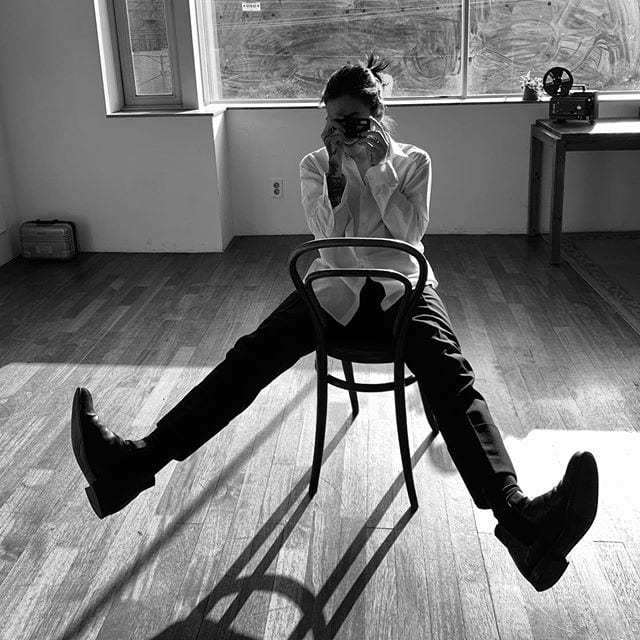
“Yeah?”
“Yeah, that’s all. Why would I do it if it’s not fun?”
That’s all well and good, but most find it easier to just stay solidly in one lane. (The old adage: If it ain’t broke, don’t fix it.) Is that his philosophy as well, or does he find more ease in switching it up?
“Well, it’s both,” he says. Then, “I don’t really care about change or staying. I don’t care about the way I go. All I care about is whether it’s fun or not. That’s all. We don’t even know if we’re gonna die tomorrow.” Again his voice rises. There’s a ghost of laugh, but he’s completely serious. “All we have to do is focus on today by doing something that’s fun. That’s so important to me.”
It’s All About Now
However, whether he realizes it or not, that’s not an easy feat in our modern social constructs. We’ve been rapidly conditioned to always need approval. To always need people to “like and share.” To “subscribe.” To pay attention to us. In truth, this is what breeds the culture in music of releasing singles. For the most part, the effort, and more pertinently the time it takes to make a full album is too much of a risk in a world where staying relevant is superior to cultivating a legacy.
Not to Samuel Seo. Not by a long shot.
“It’s all about making… how do I put it? I don’t really like using the word ‘art,’” he admits. “Nowadays everyone’s using it. But I think making a certain form of really great art is way more important than to commercialize songs, you know what I mean?”
Given the nature of social media and “now now now” culture, that mindset is quickly dwindling. However, with those we consider the modern greats–your Frank Oceans, D’Angelos, Lauryn Hills–so much time goes between their releases. How does Seo avoid feeling pressure to always stay relevant?
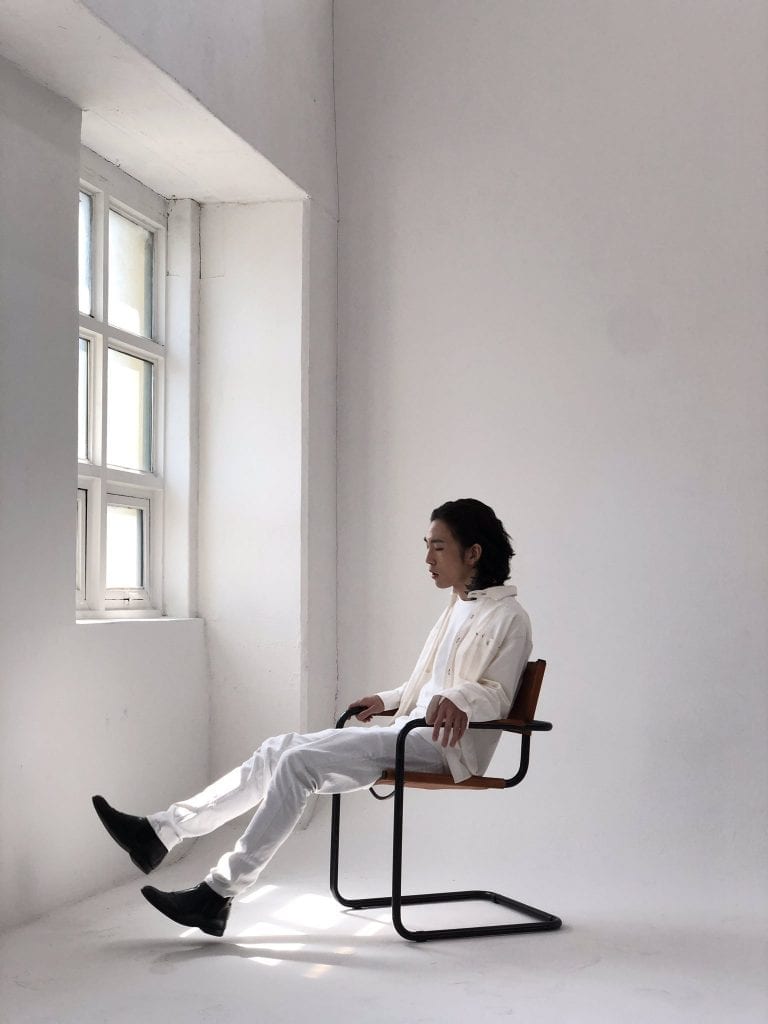
“To be honest I don’t even think about it. As long as I do music I’m pretty sure on what I’m doing, no one’s going to do better than what I do for a while.”
“Bold, bro.”
“Look, I don’t care,” he says emphatically.
“Why shouldn’t I?”
He does emphasize the point he only feels this way about making music in Korea. But all this comes from a man who participated in one in an ever-growing list of “reality” competition shows: “Breakers.”
“It was fun!” he says, honest exuberance coming through the phone. “That’s all. The staff of the show called me one day, and they were like they were trying to make this one show called ‘Breakers.’ ‘Are you down here? You wanna join?’ I was like, why not? I got nothing to do anyway. So let’s do it!”
I’m mostly curious about his thoughts because he participated on “Breakers.” Anyone who’s been even a casual follower of MNET’s elimination talent programs understands the definition of “reality” is very loose. The channel has a somewhat unhealthy obsession with, shall we say, “creative” editing.
This snatches another laugh out of him. “There’s this one thing that happened before the show was aired,” he begins. “The staff were like, ‘No matter how you were presented to the audience, don’t be scared, it’s gonna pass.’ That’s all they were saying to me,” he revealed. “I didn’t even get to see how it was edited until the day it was aired. So as soon as I saw how I was being presented through the show I was like, ‘What have they done to me? Oh my god!’”
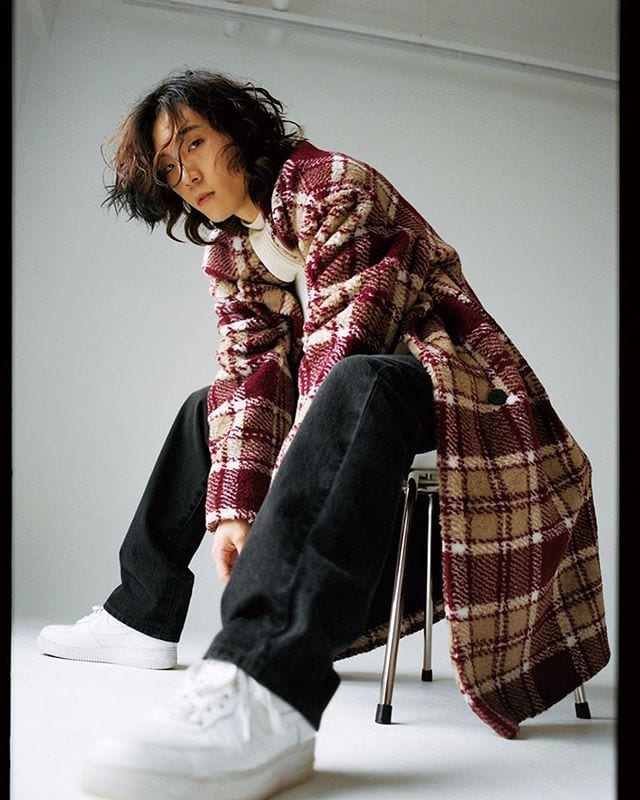
As with most things, however, Seo takes it with a grain of salt. “Still, it was fun. So it doesn’t matter.”
“You don’t mind the whole competition part of it?”
“It’s happening. There’s nothing I can do about it, right?” I have to contend his point.
With how wantonly the channel portrays participants, I wonder what Seo thinks of shows like “Show Me The Money.” His answer, unsurprisingly, is as honest and downright bold as everything else he’s said so far.
“Lame!” Again with that laugh of his. “You agree, though, right?
“Well… Let’s just say I’ve only ever gotten past the first couple episodes before giving up.”
“I’m only going through the short clips,” he says. Then after a beat, “To see how stupidly they’re doing!”
At this point, we get a bit lost in conversation about the nature of the beast. The sudden change of heart of many artists who were adamantly against being on those shows, then ended up on them anyway. “I know!” he says incredulously. “I’m still wondering why that happened. And maybe that’s the reason why I’m not famous yet.” We share another laugh. “ I think I’m the one who’s doing things right, so I don’t care.” Cocky as hell. I have to say, I honestly love it.
At the end of the day, however, for Seo, it boils down to one thing: “Why shouldn’t I go on the TV and do something?”
Vision & Ambition
Exactly. Why shouldn’t he? The fact is, all he really cares about is the music. Anything else is just another part of the experience. “I have respect for every side of what I go through,” he admits.
His ability to just go with the flow, for lack of a better phrase, is most apparent in his music. He’s admitted to having a set goal whenever he makes music now. But he doesn’t allow that vision to hold him back. In fact, one might say it frees him more than acts as a restriction. Expands his ego, if you will. This is fundamentally why I fell in love with his music. Even what he considers “lame” and “thoughtless.” I’ll say it until I can’t say it anymore. Samuel Seo does not make bad albums!
It’s apparent, his desire to constantly improve. Constantly dig for more musically. It’s what makes an album like “UNITY” so damn impressive. He confessed in an interview that the project was a product of his desire to see how it was to work with various people from various musical philosophies and backgrounds.
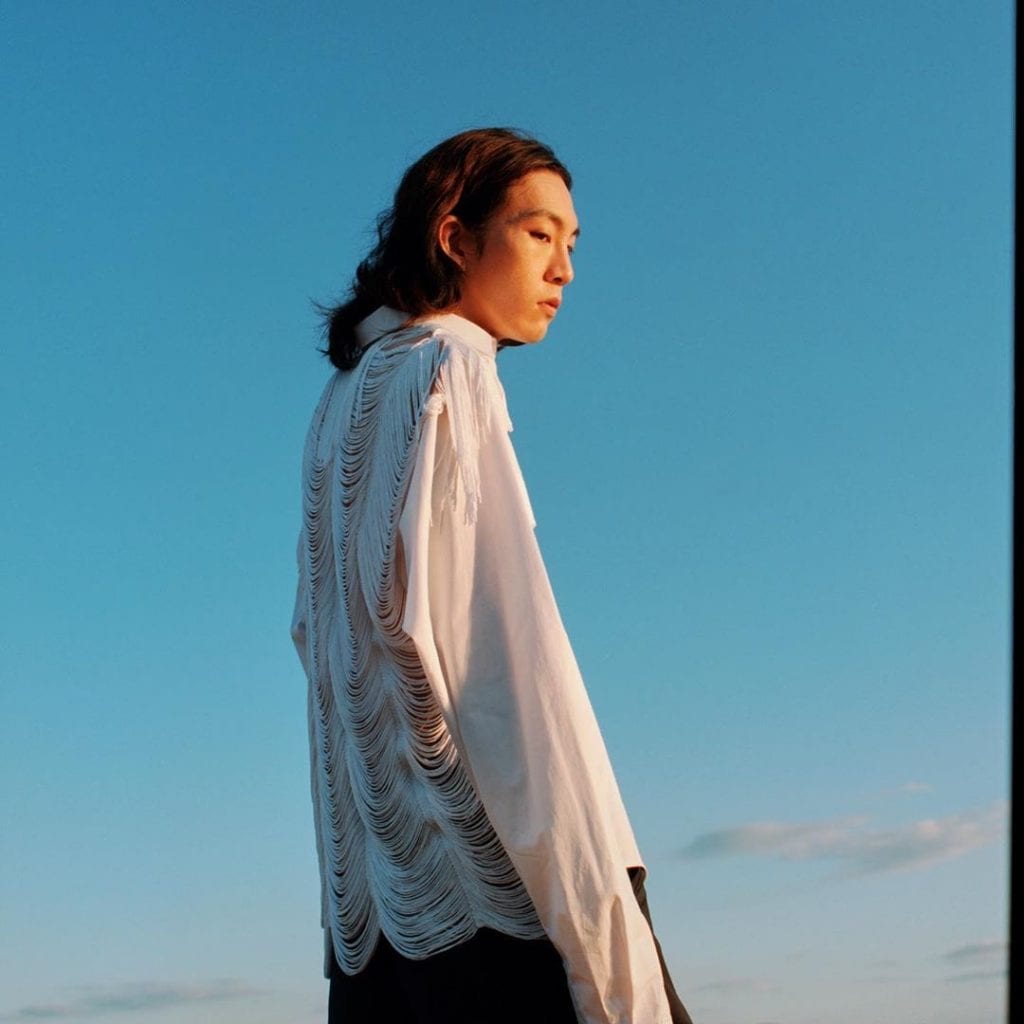
I can’t help but wonder if he believes that same idea is possible in a real-world setting. Does music in fact have the ability to bring the kind of harmony he aimed for with “UNITY”?
“Of course.” He’s emphatic on this point. “I don’t know if this is the proper example. But there’s this record label that I admire and I someday wanna be signed to. It’s called Motown Records.” Naturally that gets a reaction from me. “Just look what they did. What Koreans need is what they’ve done back in the 1960s, ’70s. Trying to achieve more than what music can do. Because they don’t just consider music as a recreational side. They consider music has more power and more into it. That’s what I aim for here.”
Seo has the type of ambition and hunger for truth to actually pull it off himself. Hey, he’s had aspirations of opening his own music school once he’s decided to hang up his mic. So why not?
“That’s simple,” he says. After a pause, he exclaims, “I’m not that famous yet!” Cocky, but there’s also disarming humility oozing out of him at every turn. “Look, if I’m that famous to be able to open up a huge studio and gather people around me, I wouldn’t be here. I’d be in some other part of the world, some other country.”
However, Berry Gordy started Motown Records with money from one of his sisters. He bought a small house where they used the bathroom as the echo chamber. “You gotta start somewhere,” I say.
“That’s true,” he concedes. “Actually I rented a warehouse in Korea. But I intend to take my time on finding new artists. Not something you can find in a day, right?”
Also true. It’s exciting to note that he’s actually actively seeking new talent.
“I do that all the time. I just go watch some random musician’s concert, see what they’re doing, and just listen to what they think about the music and stuff.
“Actually I found one in 2019. This little kid’s name is DAMYE. A local musician here too. He’s from, I don’t know, LA? He’s not Korean at all, but this kid is amazing. You should check his album out.”
Samuel Seo: The Misfit
Without a doubt, Samuel Seo’s a busy man. Between competing on “Breakers” and finding artists to add to his future roster of stars, he created one of the best albums to come out of South Korea this year. The entirety of our conversation has led us here.
His fixation with exposing perhaps some of the less complementary aspects of his culture bleeds into his work. “The Misfit” is a culmination of everything leading up to the very moment of its release. It might be his boldest, most poignant commentary on the culture that raised him to date. What a statement it makes.
The entire album is compelling. However, there are a few songs that really resonate with me. “Something & Nothing” sparks me as a particularly scathing self-examination. As if his best-laid plans amounted to less than he’d hoped.
“Well, remember like ten years ago when I released my unofficial dumb album?” And we’re back. “All I cared about was, ‘Hey, with this album I could be famous, riding around in those big rides and stuff.’ That’s all I aimed for,” he says. “But when time flew [by], it turned out it’s nothing. Right? All that materialistic [stuff] doesn’t matter at all. As long as I can take care of myself and my family, that’s all I need. I don’t care about all that other stuff now.
“It’s kind of gypsy stuff, right?” he says with a laugh. I don’t deny it. We might hate to admit it, but most of us are constantly worrying about paying rent, keeping the lights on, having enough to maybe go out for an occasional drink or meal.
“It’s real out here!”
“It’s real to a lot of people out here too,” he says. “But I’m glad it’s just not my story, that’s all. That’s all I need. I don’t care about other stuff.”
Undeniably, Seo is very cognizant of his history. Of the uniqueness of South Korean culture. With everything he is, he embraces it with his entire being. Again, his goal is to bring his culture to the music he cares so much about. The music video for “PlayaPlayaPlaya” attests to that fact.
It’s a gorgeous video. The first features legendary mime dancer Yu Jingyu. With raw passion, energy, and emotional candor, the elder interprets Seo’s lyrics. Surrounded by sand, dry shrubbery, and the looming presence of the mountains in the back, Yu pours his soul into the words. Version number two features Seo in a separate part of the desert. The elder mime is silent (per the nature of the artform). Conversely, Seo sings the lyrics out, head tilted to the heavens. The dynamics are fascinating.
The idea of the older mime is so interesting to me.
“I don’t know about in other countries, but in Korea, the younger ones kind of don’t have respect for the older ones anymore, you know what I mean? But there’s always at least one thing you can learn from the older ones, right? So I really wanted to remind [people of] that throughout the music video. That’s all.”
You contrast that with “Ordinary Kids.” It’s a song that asserts that kids don’t learn or dream from school. They learn from actually living life. Certainly a relatable sentiment. In the States, point-blank, you learn in order to pass tests, not to prepare yourself for the world. Certainly not to believe your dreams are attainable. Pretty gutsy stuff from the perspective of someone living in a country whose obsession with education is staggering.
“I wrote that song because the culture, the education being hardcore and stuff here, I thought it was stupid, you know what I mean? What I think is if a kid wants to do something, you should let him or her do it.
“As you grow up, going through all the schools in Korea, your dreams are narrowed down, literally. When you were like a six- or five-year-old kid, they got like a hundred different things they can do in their mind. But when they turn 17 or 18, then that’s the time when their dreams are narrowed down into, ‘Well, you can do this. You can do that.’ To only like eight or seven things. That’s a really sad thing.
“So I really wanted to pick that point to let us Koreans be reminded that we are living in a… I don’t know. I wouldn’t say it’s a wrong culture, but it should be more flexible.”
“Do you think that mindset is ever going to change?”
Without hesitation, “I don’t think so. I’m a victim growing up.”
Once again, relatable.
“You should remember this name…”
When it’s all said and done, it does my heart good to hear that he plans to take some time for himself in the near future. Self-care, especially in relation to mental health, is still a very new and nuanced conversation for South Korea.
“I’m thinking of heading over to Bali to spend some vacation. I need some time to rest. I’ve been working too much. Throughout my 20s I didn’t really get much time to take a break properly. So I thought, I think it’s about time to get some rest.”
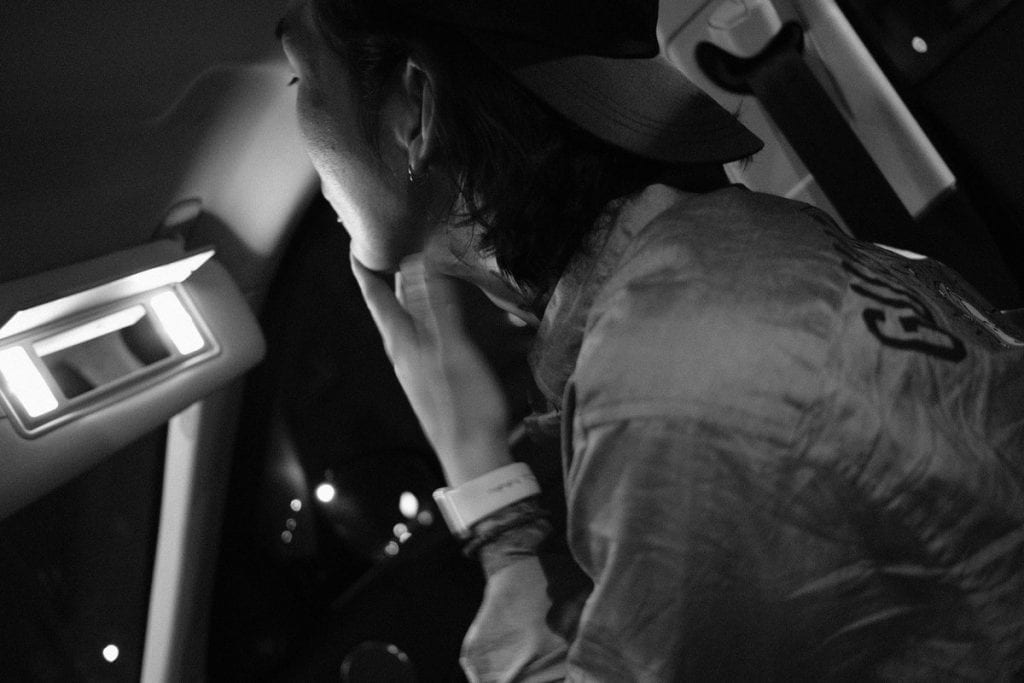
Yes, it’s true. Samuel Seo’s quite a simple man. However, he has such an incredible belief in himself. Such a strong sense of awareness. The very first thing I notice about him? He speaks clearly and with confidence. Don’t let his opening quips about being just a “local musician” fool you. Samuel Seo knows who he is. Somewhere in his soul he’s aware that others know exactly who he is as well.
“To the ones who’ll be reading this, I know you’re not familiar with this name Samuel Seo that much. But even though it’s your first time coming across my name, you should remember this name. It’s gonna turn out huge!”